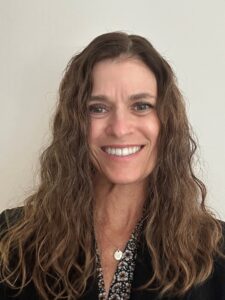When people come together to pursue common goals, good things can happen. The same is true when organizations join forces. That has been the experience of incoming ARP President Rebecca (Becki) Cleveland, PhD, MPH, who plans to encourage both.
Dr. Cleveland earned her MPH from Tulane University, New Orleans, and her doctorate in epidemiology from University of North Carolina-Chapel-Hill (UNC-Chapel-Hill), where she has worked since 2005, including in a faculty position at the Thurston Arthritis Research Center (TARC), where she is a member. She is currently the director of biostatistical operations for the North Carolina Translational and Clinical Sciences (NC TraCS) Institute.
In preparing to step into her role as ARP president, Dr. Cleveland spoke with The Rheumatologist (TR) to share her plans to promote communication, teamwork and joint ACR/ARP collaboration to ultimately serve members of the ARP—and the ACR—better.
TR: How did you get interested in rheumatology?
Dr. Cleveland: I took a very circuitous route. My master’s degree focused on environmental epidemiology, and my PhD was in cancer epidemiology. It may seem strange to take this path, but epidemiology itself is a set of tools: You apply the same methods whether you’re studying diseases, exposures or other factors. So when I started working with TARC in 2011, it was a natural transition to rheumatology. That was my first introduction to the field, and I thought, ‘This is what I’m meant to be doing.’
TR: How so?
Dr. Cleveland: I was immediately very interested in osteoarthritis, which is the leading cause of disability in the U.S. As a lifelong athlete, I understood how devastating arthritis can be. Over the years, I’ve seen that play out in some of my athlete friends. From the start, I saw the importance of reducing the impact of osteoarthritis, particularly through physical activity, and I knew I wanted to be part of that work.
TR: When did you become involved in volunteering for the ARP and the ACR?
Dr. Cleveland: When I joined TARC, my mentor and collaborator—and past president of the ARP—Leigh Callahan, encouraged me to volunteer. [Leigh Callahan, MD, is the Mary Link Briggs Distinguished Professor of Medicine at UNC-Chapel-Hill and associate director at TARC.] She told me it would help me learn more about rheumatology, while also offering opportunities to connect and network. She was absolutely right. Volunteering gave me insight into how the organization functions and helped me learn what educational and other products are available. More importantly, it helped me build valuable professional relationships and collaborations.




